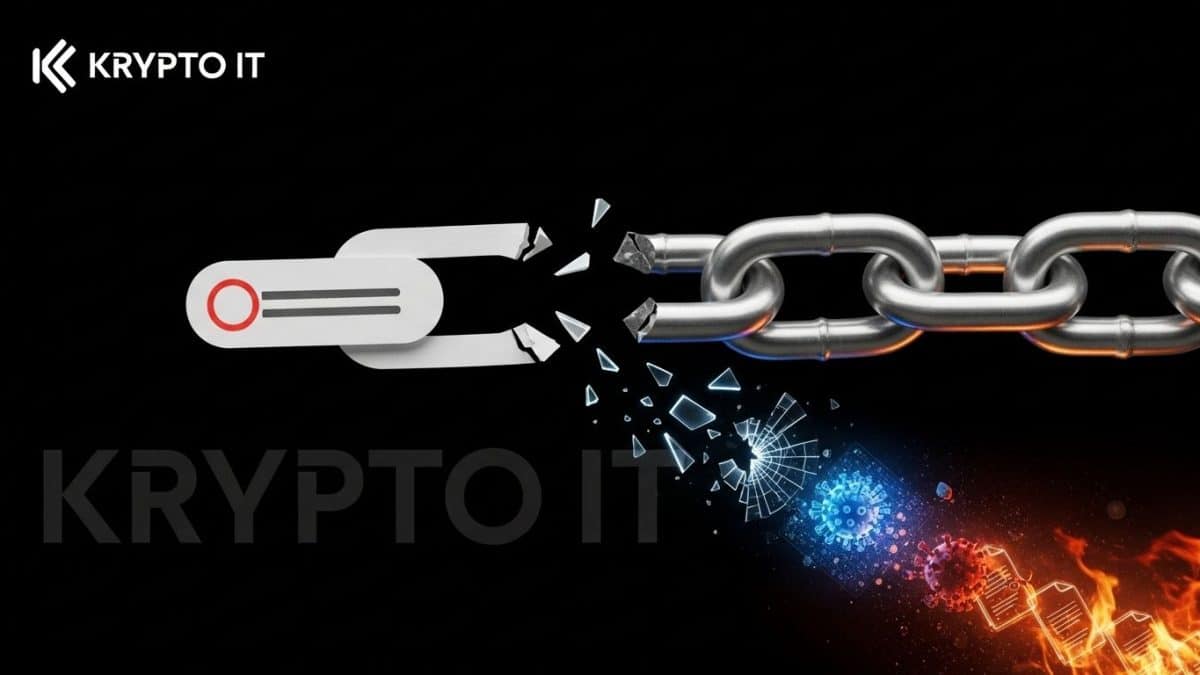
From Backup to Cyber Resilience
July 22, 2025
The ‘Set It and Forget It’ Trap
July 27, 2025How a Single Weak Password Sank a 158-Year-Old Company
In the fast-paced world of cybersecurity news, it’s easy to become desensitized to reports of data breaches and ransomware attacks. But sometimes, an incident cuts through the noise and delivers a stark, undeniable truth: a single cybersecurity lapse can have catastrophic, even company-ending, consequences. This was tragically demonstrated by the recent collapse of KNP Logistics Group, a 158-year-old UK transport company, which reportedly ceased operations and laid off 700 employees after a ransomware attack initiated by the Akira gang. The root cause? A single weak employee password.
For Small and Medium-sized Businesses (SMBs) in Houston, this isn’t just a distant cautionary tale from across the pond. It’s a critical, immediate warning. The demise of KNP Logistics underscores that even established, long-standing businesses are vulnerable to the most basic of cyber flaws, highlighting why robust password security is not merely an IT issue but a fundamental business imperative.
The KNP Logistics Tragedy: A Case Study in Vulnerability
Details emerging from the KNP Logistics incident paint a clear, heartbreaking picture:
- The Entry Point: The Akira ransomware group reportedly gained unauthorized access to KNP’s computer systems by simply guessing an employee’s weak password. This bypassed any perimeter defenses and provided the initial foothold into the company’s network.
- Ransomware Deployment: Once inside, the attackers deployed ransomware, encrypting KNP’s essential data and locking down its internal systems. This immediately crippled the company’s ability to operate, access financial records, manage logistics, and secure new funding.
- Extortion and Paralysis: The hackers demanded an estimated £5 million ransom. KNP, unable to meet this demand, faced complete data loss and an irreversible operational standstill.
- Devastating Outcome: The inability to recover its critical systems and data, directly stemming from the initial password compromise, forced the 158-year-old firm into administration, resulting in the loss of 700 jobs and the permanent closure of the business.
This incident is a painful reminder that even if a company boasts overall IT compliance and cyber insurance, a single crack in the armor—like a weak password—can be all it takes for a determined adversary to achieve total compromise.
Why Weak Passwords Remain a Fatal Flaw
The KNP Logistics case highlights several persistent issues that make weak passwords a dangerous liability for any business:
- Low-Hanging Fruit for Attackers: Cybercriminals constantly scan for easily exploitable vulnerabilities. Weak passwords are the digital equivalent of leaving your business’s front door unlocked. Automated tools can crack millions of common passwords in seconds.
- Credential Stuffing Risk: Employees often reuse the same username/password combinations across multiple personal and work accounts. When one of these personal accounts is breached (and billions of credentials are exposed annually), attackers simply “stuff” those compromised credentials into login forms for corporate systems. A weak password on a personal forum could directly lead to a breach of your company’s critical infrastructure.
- Human Error and Negligence: Despite widespread awareness, many individuals prioritize convenience over security, choosing simple, memorable passwords or storing them insecurely (e.g., on sticky notes, unencrypted spreadsheets).
- Gateway to Deeper Compromise: A successful password compromise is rarely the end of the attack. It’s often the initial entry point, allowing attackers to perform reconnaissance, escalate privileges, move laterally within the network, and ultimately deploy devastating payloads like ransomware.
- Direct Financial and Reputational Damage: As seen with KNP, the direct financial cost of an attack (ransomware, recovery efforts, legal fees) can be insurmountable for an SMB. The long-term damage to reputation and customer trust can be equally devastating, even if the business survives. Verizon’s reports consistently show compromised credentials as a top breach vector.
Protecting Your Houston SMB: Strengthening Your Password Frontier
The tragic fate of KNP Logistics offers invaluable, albeit painful, lessons for every SMB in Houston. Fortifying your password security is not just a best practice; it’s a critical component of your business’s survival strategy.
- Mandate Multi-Factor Authentication (MFA) Everywhere: This is the single most impactful defense against compromised credentials. Even if a password is stolen or guessed, MFA provides a crucial second layer of verification (e.g., a code from an app, a fingerprint scan).
- Action: Make MFA mandatory for all employee accounts, especially for email (Microsoft 365, Google Workspace), cloud applications, remote access (VPNs), and internal systems. Prioritize stronger MFA methods (authenticator apps, hardware keys) over SMS.
- Implement a Business-Grade Password Manager:
- Action: Provide and enforce the use of a reputable business password manager. These tools generate and securely store unique, complex passwords for every account, eliminate password reuse, and facilitate secure sharing among teams.
- Enforce Smart Password Policies:
- Action: Focus on password length and uniqueness over forced complexity and frequent changes. Aim for at least 12-16 characters. Prohibit the use of common dictionary words, personal information, or obvious patterns. Crucially, explicitly forbid password reuse.
- Conduct Continuous Security Awareness Training:
- Action: Educate employees regularly and rigorously about the dangers of weak passwords, password reuse, and social engineering tactics (like phishing) that aim to steal credentials. Use real-world examples (like KNP) to illustrate the consequences.
- Emphasize MFA Vigilance: Train employees never to approve unexpected MFA prompts and to report any suspicious login activity.
- Regular Vulnerability Management and Patching:
- Action: While a weak password was the entry point for KNP, underlying unpatched systems can exacerbate the damage. Ensure all operating systems, applications, and network devices are consistently patched and updated.
- Implement Strong Access Controls (Least Privilege):
- Action: Limit employee access to only the data and systems absolutely necessary for their job functions. If an account is compromised, the “blast radius” is contained.
- Robust, Tested Backups (Cyber Resilience):
- As previously discussed here: (https://www.kryptocybersecurity.com/from-backup-to-cyber-resilience/)
- Action: Had KNP been able to recover its data from clean, air-gapped backups, the outcome might have been different. Implement a comprehensive backup and disaster recovery plan that includes immutable, off-site, and regularly tested backups.
The tragic end of KNP Logistics is a stark, modern-day parable for businesses everywhere: your cybersecurity is only as strong as its weakest link. For Houston SMBs, ignoring the fundamentals of password security is a gamble you cannot afford to lose. Krypto IT specializes in helping businesses like yours implement robust, multi-layered cybersecurity solutions, starting with foundational practices that protect you from devastating consequences.
Don’t let a weak password sink your business.
Contact Krypto IT today to schedule a free consultation and fortify your digital defenses from the ground up.




